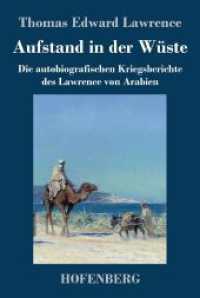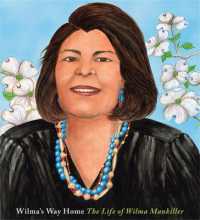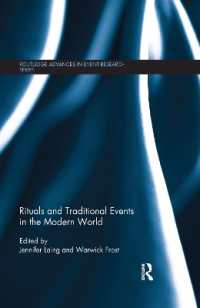Full Description
Coros y Danzas explores how women of the early Franco regime adapted musical folklore and Spanish nationalism according to different political circumstances. Author Daniel David Jordan focuses on the end of the Spanish Civil War until the Pact of Madrid with the United States-a period where Spain transformed itself from a supporter of Nazi Germany to a faithful ally of the Western Bloc. The Sección Femenina of the fascist Falange party officially represented the regime's views and policies on female gender roles. Sending their instructoras de música to remote villages throughout the nation's diverse cultural and linguistic regions to select, transcribe, and compose songs and dances, they were portrayed as the keepers of Spanish folk music.
Through their Music Department, these women shaped traditional Spanish songs and dances to promote ideas of Catholic morality throughout the nation's culturally diverse regions, helped legitimize colonial involvement in Spain's African territories, and formed political ties with the Allied powers after World War II. The Sección Femenina was never simply a one-sided mouthpiece of the dictatorship's nationalist, Catholic underpinnings. Despite the Franco regime's patriarchal nature, many members were highly independent, negotiating with local cultural elites and foreign political diplomats to further their own careers and personal philosophies. Drawing from literature on cultural diplomacy and nation-building, Coros y Danzas proposes how the Sección Femenina's definition of Spanish cultural and racial purity was never monolithic, but a malleable concept that was nuanced depending on geographical and social contexts in which its members were operating.
Contents
Acknowledgements
Table of Contents
List of Figures
Introduction: Exhumations
Chapter 1: The Performance of Spanish Femininity in the Sección Femenina
Chapter 2: Songs and Dances of the Raza española
Chapter 3: Mementos of al-Andalus in Colonial Morocco
Chapter 4: Divide and Conquer - The Sección Femenina in the United States, France, and Belgium (1950-53)
Chapter 5: Sorority in the Americas
Reflections
Appendix I: Rules of the National Competition of Coros y Danzas
Appendix II: International Tours
Bibliography
Index







